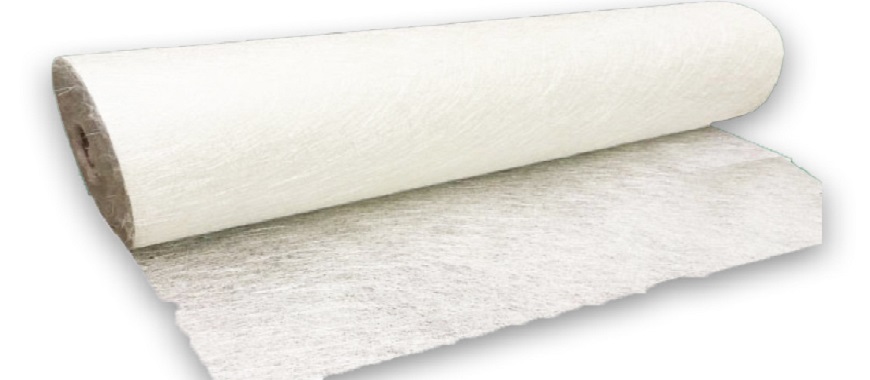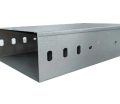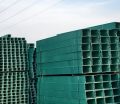
Basalt chopped strand mat is a versatile composite material made from basalt fibers, offering exceptional strength and durability. This material is widely used in industries like construction, automotive, and aerospace due to its excellent performance characteristics. The use of basalt chopped strand mat enhances the structural integrity of composites while providing resistance to heat and corrosion.Choosing the right composite material is crucial for ensuring long-lasting results and optimizing performance. Basalt chopped strand mat, with its unique properties, is a preferred option for various applications. Selecting the correct material can improve efficiency, reduce costs, and extend the lifespan of the final product. Understanding the benefits of basalt chopped strand mat helps manufacturers make informed decisions.
In-Depth Look at Basalt Chopped Strand Mat and Its Advantages
Basalt chopped strand mat is a highly durable, versatile material made from basalt fibers, offering significant advantages in various industrial applications. Known for its excellent mechanical properties and resistance to environmental factors, the basalt chopped strand mat advantage lies in its ability to strengthen products, reduce weight, and improve overall performance. Its high heat resistance, durability, and adaptability make it ideal for a wide range of applications, providing superior strength and performance in harsh environments. Understanding its composition, applications, and these unique advantages will help in selecting the right material for different industrial needs.
What is Basalt Chopped Strand Mat?
Basalt chopped strand mat is made from continuous basalt fibers, which are chopped into strands and bonded together to form a flexible mat. This composite material is widely regarded for its remarkable strength, resistance to heat, and excellent corrosion resistance, making it suitable for numerous applications in industries such as construction, automotive, and aerospace.
- Explanation of Basalt Fiber and Its Properties:
- Basalt fiber is made from volcanic rock, making it naturally high in silica and capable of withstanding extreme temperatures.
- It is non-toxic, environmentally friendly, and resistant to chemical corrosion.
- Basalt fibers have a higher thermal stability compared to hollow glass fibers, which adds to the durability and performance of composite materials.
- The material is also highly resistant to electromagnetic interference, which makes it ideal for electrical and telecommunication industries.
- Benefits of Using Basalt Fiber in Composite Materials:
- High Strength-to-Weight Ratio: Basalt chopped strand mat offers excellent strength without significantly increasing the weight of the final product.
- Enhanced Durability: It is highly resistant to wear, corrosion, and extreme temperatures, extending the lifespan of products.
- Cost-Effectiveness: Basalt fibers represent a practical choice within the realm of carbon fiber alternative materials, offering a more affordable solution without sacrificing performance. Their durability and strength make them a reliable option for industries seeking cost-efficient materials that maintain high-quality standards.
- Eco-Friendly: Being derived from natural volcanic rocks, basalt fibers are sustainable and contribute to eco-friendly manufacturing processes.
- Improved Fire Resistance: The material is naturally resistant to fire, which is crucial in industries that require high levels of safety.
Different Resins for Basalt Chopped Strand Mat
The performance of basalt chopped strand mat can be significantly influenced by the type of resin used. Different resins offer unique properties, making them suitable for specific applications. Choosing the right resin is essential for achieving the desired strength, durability, and cost-effectiveness of the final composite material.
- Epoxy Resin: Advantages and Common Uses:
- Strong Bonding: Epoxy resin forms a strong bond with basalt fibers, ensuring high mechanical strength.
- Heat Resistance: Epoxy resins offer excellent thermal stability, which is crucial for high-temperature applications.
- Common Uses: It is commonly used in the automotive, aerospace, and marine industries, where durability and high performance are critical.
- Benefits:
- Superior adhesive strength
- Excellent electrical insulation properties
- High resistance to environmental degradation
- Considerations:
- Higher cost compared to other resins
- Requires precise curing conditions
- Phenolic Resin: Key Features and Applications:
- High-Temperature Resistance: Phenolic resin is known for its excellent heat resistance, often used in applications requiring fireproof materials.
- Flame Retardant: It is ideal for industries that require flame retardant composites, such as the automotive and construction sectors.
- Common Uses: Used in the production of friction materials, such as brake pads and clutches, where high-temperature resistance is a priority.
- Benefits:
- Exceptional fire resistance
- Strong resistance to heat and chemicals
- Considerations:
- It has a strong odor during curing
- Limited flexibility compared to epoxy resins
- Vinyl Ester Resin: Why It’s a Popular Choice:
- Versatility: Vinyl ester resins offer a good balance of mechanical properties, chemical resistance, and ease of processing.
- Durability: It has superior resistance to corrosion and moisture, making it ideal for marine and construction applications.
- Common Uses: Often used in the manufacturing of tanks, pipes, and boats, where exposure to harsh environmental conditions is common.
- Benefits:
- Excellent resistance to corrosion and chemicals
- Better toughness than polyester resins
- Considerations:
- More expensive than polyester resins
- Requires careful mixing to avoid curing issues
- Polyester Resin: Cost-Effectiveness and Suitability:
- Affordable Option: Polyester resin is one of the most cost-effective options for producing composites. It is widely used in industries that prioritize affordability.
- Ease of Use: This resin is easy to work with and cures quickly, which is ideal for high-volume production environments.
- Common Uses: Commonly used in the automotive, marine, and construction industries for products like boats, car parts, and building materials.
- Benefits:
- Lower material costs
- Fast curing times
- Considerations:
- Lower mechanical properties compared to epoxy and vinyl ester resins
- Not as durable in harsh environmental conditions
Basalt chopped strand mat is an excellent composite material offering a balance of strength, durability, and cost-effectiveness. By choosing the right resin, such as epoxy, phenolic, vinyl ester, or polyester, manufacturers can tailor the properties of basalt chopped strand mat to meet specific application needs. Whether used in high-performance automotive parts, durable construction materials, or fire-resistant friction materials, basalt chopped strand mat offers unique benefits that enhance product quality and reliability across industries.
Key Steps in the Chopped Strand Mat Manufacturing Process
Recommended Uses for Basalt Chopped Strand Mat
Basalt chopped strand mat is a versatile material that can be used in various industries due to its outstanding properties. Its strength, durability, and resistance to heat and corrosion make it ideal for both general and specialized applications. This section explores the primary uses of basalt chopped strand mat, with a focus on frictional materials and customization options for different industries.
Applications in Frictional Materials
Basalt chopped strand mat plays a significant role in the manufacturing of frictional materials. Its excellent mechanical properties and heat resistance make it an ideal component in products that are exposed to high levels of stress and friction. The material is increasingly used in automotive, railway, and industrial applications where durability and safety are paramount.
- How Basalt Chopped Strand Mat Enhances Friction Materials:
- High Heat Resistance: Basalt chopped strand mat provides friction materials with superior heat resistance, which is crucial for brake pads, clutch discs, and other friction-based components.
- Improved Wear Resistance: The material’s durability enhances the wear resistance of friction components, extending their lifespan and reducing the need for frequent replacements.
- Stable Performance Under Pressure: Basalt chopped strand mat helps maintain consistent friction performance even under high pressure, making it ideal for applications that require long-lasting, reliable performance.
- Examples of Industries Using Basalt Chopped Strand Mats:
- Automotive Industry: Brake pads, clutch discs, and other friction components are made using basalt chopped strand mat for their heat resistance and wear performance.
- Railway Industry: Components like railway brake pads benefit from the strength and heat resistance provided by basalt chopped strand mat, ensuring safe operation in high-stress environments.
- Industrial Manufacturing: Heavy machinery and equipment that undergo constant friction can be reinforced with basalt chopped strand mat to ensure longer durability and reduce maintenance needs.
Customization Options for Different Applications
One of the key advantages of basalt chopped strand mat is its versatility in customization. Factors such as chop strand mat thickness, fiber alignment, and resin compatibility can be adjusted to meet specific industry requirements, ensuring optimal performance for various applications. This level of customization allows manufacturers to tailor the material to the demands of the end product, enhancing its efficiency and functionality.
- Special Sizing Composition Based on Industry Needs:
- Thickness and Density: The thickness of basalt chopped strand mat can be customized to provide the desired mechanical strength and flexibility for different applications. Thicker mats are used in products requiring higher load-bearing capabilities, while thinner mats are ideal for lightweight applications.
- Fiber Orientation: The alignment of the basalt fibers can be adjusted to provide directional strength, which is especially useful for load-bearing applications in aerospace and automotive industries.
- Resin Compatibility: Different resin types (epoxy, polyester, vinyl ester, etc.) can be used with basalt chopped strand mat to suit various production processes and environmental conditions.
- Benefits of Customization for Specific Project Requirements:
- Improved Performance: Customizing basalt chopped strand mat allows it to meet the exact performance standards required by different industries, ensuring optimal results.
- Cost Efficiency: Tailored products reduce waste and unnecessary material costs, making basalt chopped strand mat a cost-effective solution for a wide range of applications.
- Enhanced Durability: By customizing the material to suit the unique needs of a project, its longevity and durability can be maximized, providing long-term value to the manufacturer and end user.
- Flexibility Across Industries: From automotive to construction, the ability to customize basalt chopped strand mat for specific projects ensures its adaptability across diverse industries, enhancing its market appeal.
By understanding the diverse applications and customization options of basalt chopped strand mat, manufacturers can select the ideal specifications to meet their unique production needs. This ensures optimal performance and cost-effectiveness, making basalt chopped strand mat a preferred choice in many sectors.
FRP Chopped Strand Mat: Key Features and Advantages
Factors Affecting Basalt Chopped Strand Mat Cost and Price
The cost of basalt chopped strand mat is influenced by several factors, ranging from raw material selection to manufacturing techniques. Understanding these factors is essential for companies looking to optimize their production costs while ensuring the desired material performance. This section explores the primary factors that affect the cost of basalt chopped strand mat and how its price compares in the market.
What Impacts Basalt Chopped Strand Mat Cost?
Several key factors influence the cost of basalt chopped strand mat, making it important for manufacturers to carefully consider each element to balance quality and affordability.
- Resin Types:
- Different resin types used with basalt chopped strand mat can significantly impact its cost. Epoxy, polyester, and vinyl ester resins vary in price, with epoxy being the most expensive but providing superior mechanical properties and durability.
- Resin quality affects not only the initial cost but also the long-term performance of the material. Higher-quality resins, while costlier, provide improved resistance to corrosion and heat, extending the product’s lifespan.
- Manufacturing Processes:
- Production Scale: Large-scale production typically reduces the cost per unit due to economies of scale. Smaller, more specialized production runs may lead to higher per-unit costs.
- Automated vs. Manual Processes: Automation in manufacturing processes can reduce labor costs and increase production efficiency, making the overall cost of basalt chopped strand mat more competitive.
- Fiber Chopping and Binding Techniques: The method of cutting the basalt fibers and binding them into a mat affects the material’s price. Advanced techniques that provide uniformity and higher quality may come at a higher cost.
- Customization Options:
- Basalt chopped strand mat can be customized in terms of thickness, density, and fiber alignment. These customizations add to the overall price, especially when specific performance characteristics are needed for specialized applications.
- Custom-sized mats or mats designed for unique applications, such as those requiring specific resin compatibility or thermal properties, will generally be more expensive.
Basalt Chopped Strand Mat Price in the Market
The price of basalt chopped strand mat can vary widely depending on market conditions, materials used, and the scale of production. Understanding how its price compares to other composite materials is crucial for making cost-effective decisions.
- How Market Prices Compare Across Different Materials and Manufacturers:
- Compared to Glass Fiber: Basalt chopped strand mat is generally more expensive than glass fiber mats due to its superior strength and heat resistance. However, it is often considered a cost-effective alternative to carbon fiber, especially when performance requirements do not demand the higher cost of carbon.
- Compared to Carbon Fiber: While basalt chopped strand mat is more affordable than carbon fiber mats, it offers similar advantages in terms of strength and heat resistance. For applications requiring less stringent weight and performance specifications, basalt chopped strand mat can provide a more budget-friendly option without sacrificing key benefits.
- Pricing Variations by Region: The price of basalt chopped strand mat may vary depending on the region due to differences in production costs, shipping fees, and availability of raw basalt fiber. Manufacturers in areas with abundant basalt deposits may offer more competitive pricing due to lower raw material costs.
- Price Trends and Market Demand:
- As demand for sustainable materials grows, basalt chopped strand mat has become more competitive in terms of price. Its eco-friendly nature, derived from natural volcanic rock, makes it an attractive choice for industries looking to reduce their environmental impact.
- Price fluctuations in the basalt chopped strand mat market can be influenced by the cost of raw materials (such as basalt rock) and changes in manufacturing technology. Increased adoption of basalt fiber for various applications may lead to more stable pricing in the future.
Understanding the factors affecting the cost of basalt chopped strand mat helps companies select the best material while staying within budget. By carefully considering resin types, manufacturing processes, and customization needs, manufacturers can optimize both cost and performance.
Finding the Right Basalt Fiber Manufacturer for Basalt Chopped Strand Mat
When it comes to sourcing high-quality basalt chopped strand mat, choosing the right manufacturer is critical. As a leading manufacturer in the fiberglass and basalt fiber industry, we at GangLong Fiberglass understand the importance of selecting a reliable partner. Our focus is on providing customers with durable, cost-effective basalt fiber products, including chopped strand mats, that meet the highest standards of performance.
Basalt Fiber Tech and Other Manufacturers
There are several key players in the basalt fiber industry, but not all manufacturers offer the same level of quality and expertise. When selecting a supplier for basalt chopped strand mat, several factors should be considered.
- Overview of Leading Basalt Fiber Manufacturers:
- Leading manufacturers of basalt fiber typically have years of experience in the field and a reputation for producing high-performance materials. Companies that focus on innovation and sustainable manufacturing practices are often the best choice for quality basalt chopped strand mat.
- The production of basalt chopped strand mat involves advanced technology to ensure the fibers are consistently chopped to the desired length and bonded to create a reliable, durable material.
- How to Select a Reliable Manufacturer for Basalt Chopped Strand Mat:
- Quality Control: Look for manufacturers who implement strict quality control measures throughout the production process. A reliable supplier will provide consistent, high-quality basalt chopped strand mat that meets industry standards.
- Customization Options: A good manufacturer will offer customization options, such as varying thicknesses and resin compatibility, to meet specific project requirements.
- Customer Support and Service: Select a manufacturer that is responsive to customer inquiries and provides timely support for technical questions and product specifications.
- Sustainability Practices: Choose a supplier who is committed to sustainable production practices, ensuring that the basalt chopped strand mat is environmentally friendly.
At GangLong Fiberglass, we specialize in providing high-quality basalt fiber products, including basalt chopped strand mat, and we take pride in offering customized solutions for various industries.
Basalt Fiber Manufacturers in the United States
In the United States, there are several key manufacturers and suppliers of basalt chopped strand mat. Choosing a local supplier can offer benefits such as faster shipping times and direct communication with manufacturing teams.
- Identifying Key Manufacturers and Suppliers in the U.S. for High-Quality Basalt Chopped Strand Mats:
- Regional Suppliers: Local basalt fiber manufacturers in the U.S. can provide the advantage of quicker lead times and personalized customer service. Suppliers located in the U.S. often have better access to the regional supply chain, reducing overall costs for customers.
- Established Brands: Look for manufacturers with a proven track record in producing basalt chopped strand mats. These suppliers typically offer a range of products and materials tailored for various industries, from automotive to construction.
- Customization and Support: Many U.S.-based manufacturers offer customizable options for basalt chopped strand mat, ensuring that the product meets specific technical and performance requirements.
- Innovation and Research: Some U.S. suppliers invest in ongoing research and development to improve the properties of basalt fibers, ensuring their products stay ahead of the competition in terms of durability, cost, and environmental impact.
At GangLong Fiberglass, we proudly offer high-quality basalt chopped strand mats designed to meet the needs of diverse industries. Our products are engineered for durability and performance, making us a trusted partner for manufacturers across the United States.
CSM Chopped Strand Mat: Durable Fiberglass Material for Strength
Why Choose Basalt Chopped Strand Mat for Your Projects?
At GangLong Fiberglass, we understand the importance of selecting the right material for your specific applications. Basalt chopped strand mat offers a range of benefits that make it ideal for various industries. This section will recap the key advantages of using basalt chopped strand mat and provide final thoughts on why it should be a top choice for your projects.
Recap of Key Benefits of Basalt Chopped Strand Mat
Basalt chopped strand mat is a versatile material with outstanding properties that make it suitable for a wide range of applications.
- High Strength and Durability: Basalt chopped strand mat is known for its excellent mechanical strength and ability to withstand harsh environments. It resists wear, corrosion, and extreme temperatures, making it ideal for long-lasting performance in demanding applications.
- Cost-Effective: Compared to other advanced composite materials like carbon fiber fiberglass chop, basalt chopped strand mat offers comparable performance at a more affordable price, making it a cost-effective solution without compromising quality.
- Fire Resistance: Basalt chopped strand mat is naturally fire-resistant, offering enhanced safety in industries where fire resistance is a critical concern. This makes it especially valuable in automotive, construction, and industrial applications.
- Eco-Friendly: Basalt fiber is derived from natural volcanic rock, making it an environmentally friendly material. It is non-toxic and recyclable, contributing to sustainable manufacturing practices.
- Versatility: Whether used in friction materials, composite reinforcement, or custom industrial solutions, basalt chopped strand mat can be tailored to meet specific needs, offering flexibility for various applications.
Final Thoughts on Choosing the Right Material for Specific Applications
When choosing the right material for your projects, it’s important to consider both the technical performance and cost-effectiveness of the options available. Basalt chopped strand mat stands out as a top choice due to its excellent mechanical properties, affordability, and environmental benefits.
At GangLong Fiberglass, we specialize in providing high-quality basalt chopped strand mat tailored to your unique needs. Whether you are looking for durability, fire resistance, or versatility in your applications, basalt chopped strand mat offers a reliable and cost-effective solution. Always ensure that the chosen material meets your performance requirements and aligns with your budgetary goals.
FAQs about Basalt Chopped Strand Mat
Chopped strand mat is made by cutting basalt fibers into short lengths, typically between 2 to 6 inches. These fibers are then randomly laid in a mat form, and bonded together using a resin, such as polyester or epoxy. The resin helps to hold the fibers in place and provides additional strength to the final product. The mat is then cured under controlled conditions to ensure it maintains its structure and performs optimally in various applications. The production process allows for customization in terms of thickness, density, and resin compatibility, making chopped strand mat suitable for a wide range of industries and uses.
The process of making chopped strand mat ensures that the final material is highly flexible and durable. This versatility makes it ideal for reinforcing composite materials, such as those used in automotive, construction, and marine applications. The use of basalt fibers further enhances the strength and heat resistance of the mat, making it suitable for demanding environments.
Chopped strand mat offers several advantages over other types of reinforcement materials. First, it provides excellent mechanical strength and durability, making it ideal for use in high-stress applications. This type of mat is also lightweight, which helps reduce the overall weight of composite materials while maintaining their strength. Chopped strand mat is highly versatile, offering good compatibility with a variety of resins, including polyester, vinyl ester, and epoxy.
Another key advantage of chopped strand mat is its ability to improve the performance of composite materials in harsh conditions. The mat provides enhanced resistance to heat, moisture, and corrosion, making it suitable for use in automotive, marine, and construction industries. Additionally, basalt fibers used in chopped strand mat are eco-friendly and naturally fire-resistant, providing added safety benefits. The material is also cost-effective, making it a more affordable alternative to other high-performance reinforcement options like carbon fiber.
Chopped strand matting refers to a type of reinforcement material made from short basalt fibers that are randomly oriented and bonded together in a mat form. These fibers are chopped into uniform lengths and then arranged in layers, which are typically held together with a binder resin. Chopped strand matting is used to enhance the strength and durability of composite materials, providing reinforcement in both the longitudinal and transverse directions. This random fiber orientation gives chopped strand matting a good balance of strength and flexibility.
Chopped strand matting is widely used in various industries, including automotive, construction, and marine, to produce lightweight yet strong composite parts. It is typically used in combination with resins to create a solid structure that can withstand high pressures, extreme temperatures, and other harsh conditions. Its ease of use and versatility make chopped strand matting a popular choice for manufacturers looking for high-quality reinforcement materials that offer both strength and cost-effectiveness.
Chopped strand mat material has several important properties that make it suitable for use in a wide variety of applications. One of the key properties is its excellent strength-to-weight ratio, providing high mechanical strength without adding excessive weight to composite structures. The material is also highly flexible, making it easier to mold into different shapes during the manufacturing process. Chopped strand mat material also exhibits superior resistance to heat, moisture, and corrosion, which makes it ideal for use in demanding environments.
In addition to its physical properties, chopped strand mat material is known for its excellent compatibility with a range of resins, including polyester, vinyl ester, and epoxy. This makes it versatile and suitable for different types of composite structures. Chopped strand matting also benefits from being eco-friendly, as basalt fibers are a natural material derived from volcanic rock. The material is non-toxic and can be recycled, contributing to sustainable manufacturing practices. Furthermore, it offers fire resistance, which enhances safety in applications where high-temperature performance is required.

As the editor of GangLong Fiberglass, I have years of experience and in-depth research, focusing on cable tray products, fiberglass solutions, and grille systems. I incorporate years of industry insights and practical experience into every content, committed to promoting the progress of the industry. At GangLong Fiberglass, my commitment is reflected in every product, from innovative cable trays to durable fiberglass solutions and sturdy grille systems. As an authoritative voice in the industry, my goal is to provide valuable information to professionals and businesses and promote forward-looking solutions.


